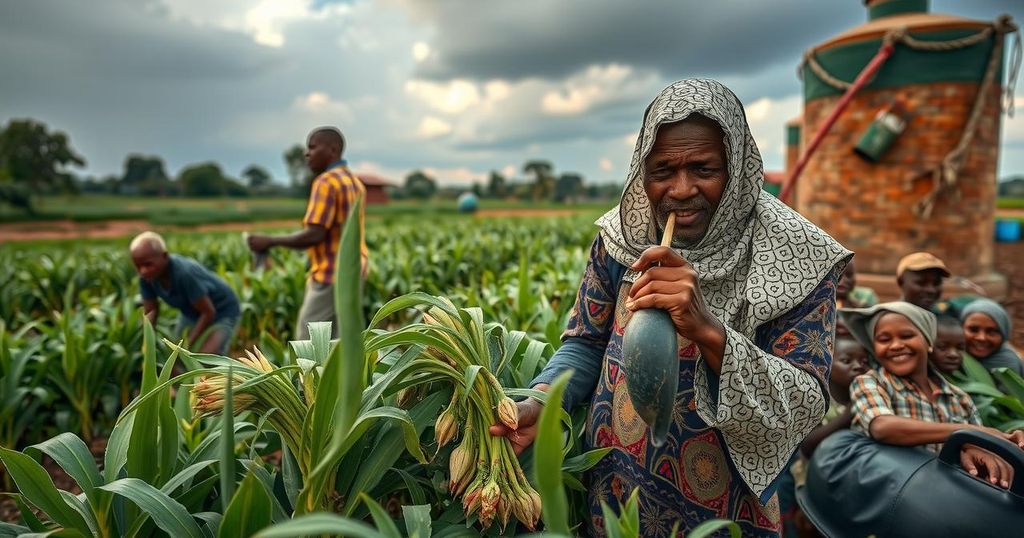Awad Usman, a refugee farmer in South Sudan’s Maban County, strives to adapt to climate change impacts, particularly flooding, with support from UNHCR. The region faces severe risks due to extreme weather events, affecting food security and livelihoods. UNHCR’s initiatives promote sustainable farming practices and infrastructure improvements to bolster resilience among refugee farmers. Awad’s recent harvest success illustrates the potential for adaptation with external assistance.
Awad Usman, a 37-year-old refugee from Sudan, begins each day by tying a small metal casing holding a prayer to his arm as he heads to his farmland in Maban, South Sudan, where he cultivates sesame and sorghum. Living in a refugee camp since fleeing war over a decade ago, Awad faces the dire impacts of climate change, particularly the seasonal floods that threaten his crops. In the past, devastating floods have destroyed his fields, forcing him to seek alternative income to support his family. As South Sudan grapples with the consequences of climate change, including increased flooding and reduced rainfall, UNHCR and climate activists emphasize the need for additional funding and resources at events like the COP29 summit. Over 1.4 million people in South Sudan were affected by recent flooding, with 271,000 displaced. The detrimental effects on agriculture compound the challenges faced by refugees and local communities, highlighting the urgency for effective adaptation measures. As reported by Alex Noel Kilong, an Assistant Livelihoods and Economic Inclusion Officer at UNHCR, food insecurity remains a pressing issue in the region, exacerbated by the combined burdens of conflict and environmental disasters. UNHCR has implemented initiatives aimed at assisting refugee farmers, which include securing land access, providing financial support for seeds and equipment, and incorporating training for adaptive farming techniques. To mitigate flooding’s impact, the organization constructed dykes and bridges, allowing Awad and his fellow farmers to protect their fields and maintain access to resources. This season, through the skills learned via UNHCR’s support, Awad successfully harvested a promising yield, demonstrating resilience against the climate threats. As he works alongside his family, tending to the crops, he finds joy in their shared labor, echoing the hope that sustained support can lead to a self-sufficient future for refugee farmers.
The plight of refugee farmers in South Sudan is exacerbated by severe climate-related challenges. For decades, the region has suffered from both conflict and increasingly erratic weather patterns, such as flooding and drought. According to the UN Environment Programme, South Sudan has seen significant decreases in rainfall and an alarming rise in flooding incidents, which threaten the livelihoods of displaced populations and local communities alike. UNHCR is actively working to address these issues by promoting sustainable agricultural practices and providing essential resources to support food security and adaptation measures.
The situation for refugee farmers like Awad Usman underscores the intersection of climate change and human displacement. Initiatives by UNHCR are critical in empowering these individuals to adapt to adverse environmental conditions and secure their livelihoods. As support and funding continue to be a focal point in international discussions, the need for sustained efforts remains imperative in fostering resilience among vulnerable communities in South Sudan.
Original Source: www.unhcr.org






